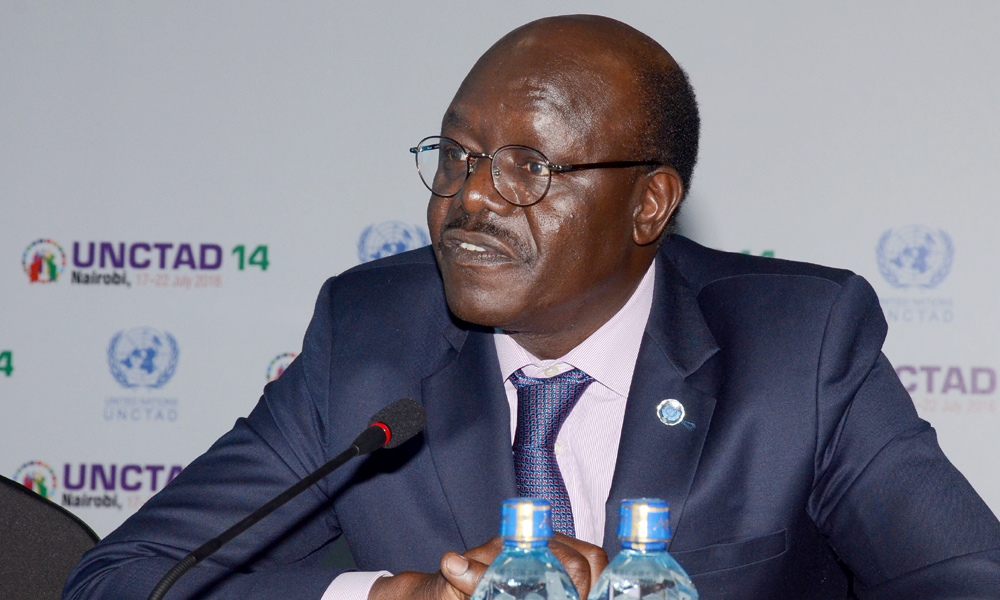One may quibble whether the emerging technological breakthroughs constitute a further step of the third industrial revolution, that is the digital economy, or whether the increased scope and speed that characterise them mark an additional revolution. What is certain is that moving into the era of big data and the Internet of Things has the potential of providing productivity gains and economic transformations that bring us closer to those achieved by the steam engine and electricity.
The increased power and use of information and communications technologies links increased connectivity between people, robots’ artificial intelligence and other features of emerging technological breakthroughs. ICTs have been with us for some time. Nevertheless, we are far from a world where everyone, everywhere, regardless of status or geography, can reap the benefits of ICTs for development.
Some 4 billion people are not yet online, and fewer still are benefitting from broadband access, partly because connectivity remains unaffordable to large segments of the population, particularly in developing countries. And among those that are active online, the full potential of the Internet is often not seized. This is why world leaders stressed the importance of bridging digital divides and leveraging ICTs in the implementation of all the Sustainable Development Goals, including by promoting ICT infrastructure development and use as reflected in the Addis Ababa Action Agenda.
One element required to seize the full potential of Internet connectivity is upgrading the capability of people to understand the communications that transit via mobile technologies, that is the appliances through which people in developing countries usually access the Internet. The advantages of enhanced Internet connectivity will be much constrained unless potential users are sufficiently literate to exploit the opportunities.
Another element is broadening the scope of what can be done via the Internet. Improved access to digital platforms for data regarding transport, distribution and sales can improve the quality, speed, reliability and cost of bringing goods and services from production sites to markets.
Further, what may be called the sharing economy has led to the emergence of many new services and applications, increasing the scope for ICTs to contribute to sustainable development.
The sharing economy affects modes of consumption by enabling peer-to-peer transactions including the shared use of assets, example cars, apartments, parking space, where people get what they need directly from each other, rather than through intermediaries. It provides numerous economic and social benefits, such as lowering the cost of consumption, creating new modalities of knowledge diffusion and enabling greater economic inclusion of women and people in disadvantaged areas.
The sharing economy is booming on many accounts. Although most peer-to-peer businesses are recent, some such as Uber, Airbnb, eBay, have evolved into multi-billion companies, serving millions of clients and expanding consumer choice.
However, the sharing economy’s net impact remains unclear. It exposes users to cybercrime. And it may actually harm inclusiveness, as its cost-cutting features risk (i) reducing earnings of traditional firms, (ii) providing fewer jobs with less job security and fewer benefits than traditional employment, and (iii) publicly accepted quality standards.
The sharing economy also essentially exempts entire classes of businesses from safety regulations or taxes just because they provide their services online. These worries concern consumer protection and social protection of the many part-time employees that often provide peer-to-peer services. Peer-to-peer transactions also tend to erode tax revenues, which hampers the public provision of basic goods and services example water and sanitation that the poor need, but that the sharing economy does generally not provide. Only universally applicable regulation can address these concerns.
A deeper understanding of the changes taking place in our economies, societies and cultures is essential to harness the ICT-induced transformations of economies and societies for the SDGs. Going forward, constructive international cooperation will be vital to address a host of emerging issues, from concerns about cybercrime to questions of inclusiveness and the fact that ICT can magnify tax avoidance with potentially worrying impacts on the provision of basic goods and services.
At UNCTAD, we have been addressing these issues, including through serving as the secretariat for the Commission on Science and Technology for Development, and will continue playing our role in harnessing ICTs for sustainable development.



